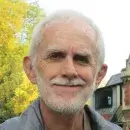
Professor
Clifford M. Will
University of Florida
Physicist; Educator
Area
Mathematical and Physical Sciences
Specialty
Physics
Elected
2002
Clifford Martin Will is Distinguished Professor of Physics at the University of Florida, Chercheur Associé at the Institut d'Astrophysique de Paris, and the James S. McDonnell Professor of Space Sciences Emeritus at Washington University in St. Louis. Born in Hamilton, Canada in 1946, he obtained a B.Sc. in Applied Mathematics and Theoretical Physics from McMaster University in 1968. In 1971, he obtained a Ph.D. in Physics from the California Institute of Technology in Pasadena, and remained at Caltech for one year as an Instructor in Physics. He was an Enrico Fermi Postdoctoral Fellow at the University of Chicago from 1972 to 1974, and from 1974 to 1981 was Assistant Professor of Physics at Stanford University. In 1981 he joined Washington University in St. Louis as Associate Professor, in 1985 became Professor of Physics, from 1991 to 1996 and 1997 to 2002 served as Chairman, and from 2005 to 2012 was McDonnell Professor.
He was elected to the US National Academy of Sciences in 2007. He was elected a Fellow of the American Physical Society in 1989, of the American Academy of Arts and Sciences in 2002, and of the International Society on General Relativity and Gravitation in 2016.
He has been an Alfred P. Sloan Foundation Fellow (1975 - 79), a Mellon Foundation Junior Faculty Fellow (1978- 79), a J. William Fulbright Fellow (1996- 97) and a John Simon Guggenheim Fellow (1996 - 97). In 1996, he was named Distinguished Alumnus in the Sciences by McMaster University, and in 2013 he was awarded the degree Doctor of Science honoris causa by the University of Guelph, Canada. In 2019, he was awarded the Albert Einstein Medal by the Albert Einstein Society in Bern, Switzerland, and in 2021 received the Einstein Prize of the American Physical Society (with Saul Teukolsky).
He has published over 200 scientific articles, including 21 major review articles, 29 popular or semi-popular articles, and four books, Theory and Experiment in Gravitational Physics (Cambridge University Press, 1981; 2nd Edition, 2018), Was Einstein Right? (Basic Books, 1986), Gravity: Newtonian, post-Newtonian, Relativistic, with Eric Poisson (Cambridge University Press, 2014) and Is Einstein Still Right? Black holes, gravitational waves, and the quest to verify Einstein's greatest creation, with Nicolás Yunes )Oxford University Press, 2020). Was Einstein Right? won the 1987 American Institute of Physics Science Writing Award, was selected one of the 200 best books for 1986 by the New York Times Book Review, and has undergone translation into French, German, Italian, Japanese, Portuguese, Spanish, Korean, Greek, Persian, and Chinese.
His recent professional activities include: Chair of Section 13 (Physics), National Academy of Sciences (2019 - 22); Editor-in-Chief of Classical and Quantum Gravity (2009 - 18); Chair, Division of Astrophysics, American Physical Society (2012 - 13); Member of Space Studies Board, National Academy of Sciences/National Research Council (2011- 15); President of the International Society on General Relativity and Gravitation (2004 - 07); Chair of the NASA Science Advisory Committee for Gravity Probe-B (1998 - 2011); member of the National Academy of Sciences Committees on Gravitational Physics (1997 - 99); Physics of the Universe (2000 - 02); Beyond Einstein Program Assessment (2006 - 07); and ASTRO 2010 Decadal Survey of Astronomy and Astrophysics (Cosmology and Fundamental Physics Science Panel (2009- 10).
His research interests are theoretical, encompassing the observational and astrophysical implications of Einstein's general theory of relativity, including gravitational radiation, black holes, cosmology, the physics of curved spacetime, and the theoretical interpretation of experimental tests of general relativity.
Last Updated